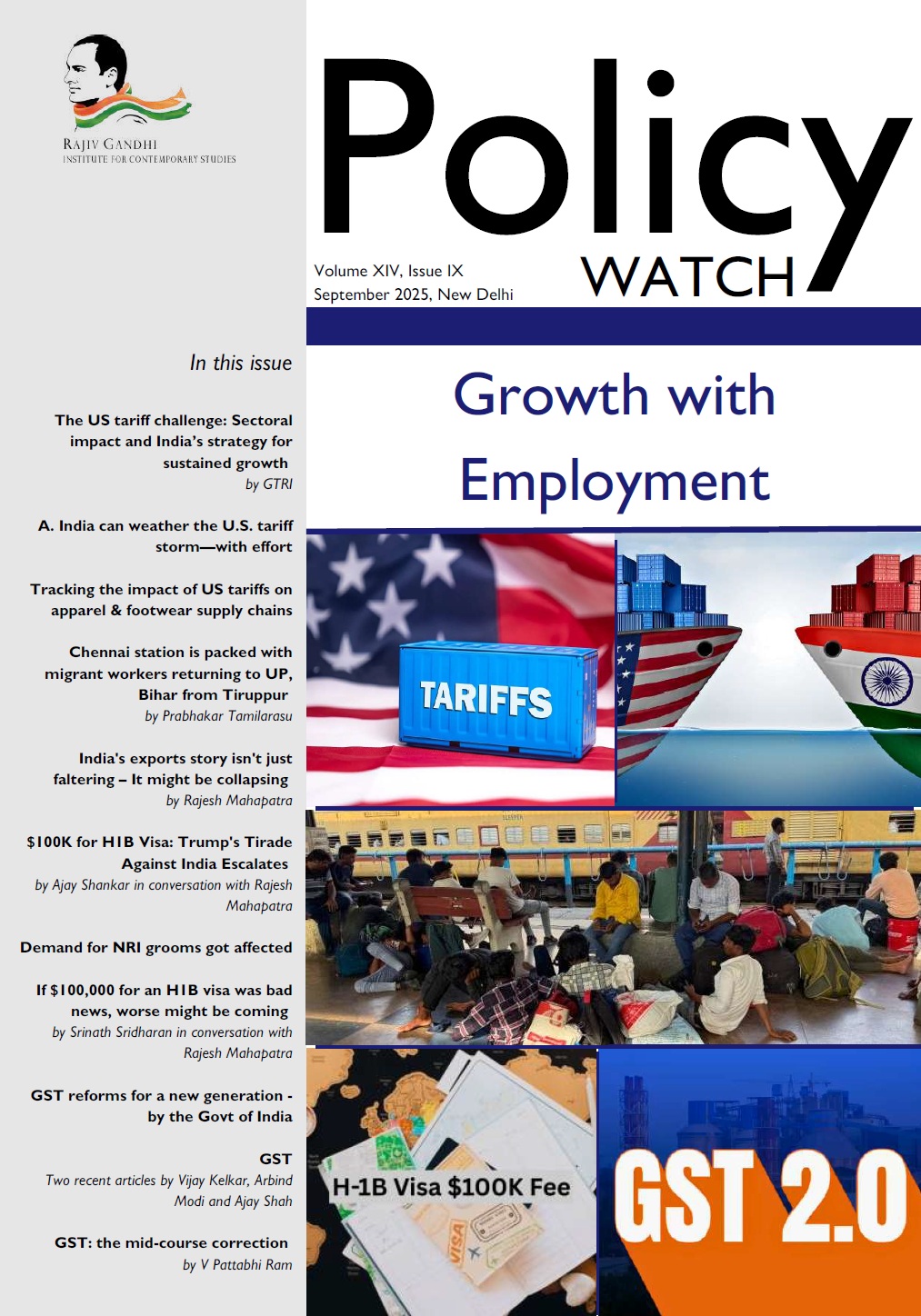
Policy Watch: Growth with Employment – September 2025
This issue is on the theme Growth with Employment. Two extremely significant events happened this month which are…

Lorem ipsum dolor sit amet consectetur adipiscing elit dolor. Lorem ipsum dolor sit amet consectetur adipiscing elit dolor

This issue is on the theme Growth with Employment. Two extremely significant events happened this month which are…